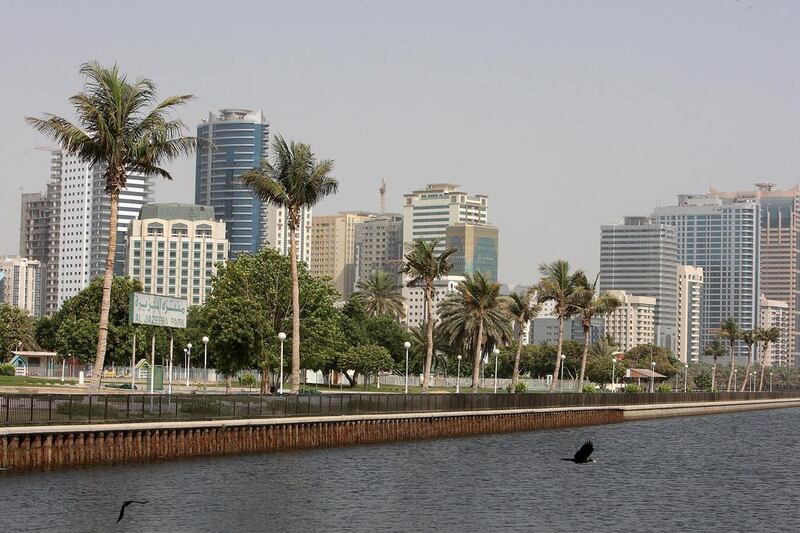SHARJAH // Tenants in Sharjah have called for a cap on soaring rents. They accuse landlords of exploiting the rising demand for homes, caused by the property boom in neighbouring Dubai.
"The rental cap is the only protection officials can give to residents," said Suleiman, who lives in the Al Khan area where his rental contract expires next month.
The owners of his flat are asking for an annual rent of Dh36,000, up from the current Dh20,000, and they have told him to either pay the amount or leave.
"The owners are calling me every minute to come to their office and give them cheques or confirm that I am leaving," said Suleiman.
Annual rents for one-bedroom apartments in Al Nahda and Al Khan are currently between Dh23,000 and Dh30,000, up from Dh18,000 last year.
In once affordable areas such as Al Qassimiya, Al Shuwayehen, Al Rolla, Al Butina and Al Nabba, a one-bedroom flat now fetches a rent of Dh20,000 to Dh26,000, up from Dh17,000 a year ago, while rents for two-bedroom flats are between Dh25,000 and Dh35,000 in most areas.
Ahmed, a resident in Al Nasiriya, said: "Everything is going up - from food to rent, except salaries. What will the poor people do? We ask the media to take our voices to the authorities to institute at least a rent cap and protect us in some way."
But according to a municipality spokesman, Sharjah affords tenants better protection than other emirates. For instance, landlords are not permitted to raise the rent for the first three years of a contract, and can only do so every other year thereafter.
"For the fourth year, he [the landlord] can increase [the rent], and for the fifth year he cannot. Then for the sixth year he can and the seventh year he cannot," said the spokesman, adding that a tenant could file a case at the municipality rent dispute settlement committee.
Mohammed Zaimukhes, a resident in Al Khan, one of the areas worst-hit by the rent rises, said he would have to move to Ajman next month when his contract expires.
"Unless there is a rent cap in Sharjah, one cannot live in such an uncertainty of how much a landlord can increase," Mr Zaimukhes said. "My landlord wants a Dh10,000 increase next year. Where on earth could such a high increase be justified?"
Property companies, however, say rents have been too low for years. One leasing agent said the rent increases were justified because tenants had been paying rents far below their real cost.
"The rent in Sharjah went down so much in the previous years," he said. "Real estate owners were patient despite making losses and lease out their buildings at prices far below their real investment. "Now it is time that tenants accept paying the worth of their buildings and relieve the owners of their burden."
Saleem Al Kaabi, the director of Sharjah's rental disputes section, said it handled more than 4,000 cases last year. Most were related to arbitrary increases even within the first three years of the contract.
Mr Al Kaabi predicted rents would continue to rise after Dubai's successful bid to host Expo 2020.
But those who are considering a move to other emirates, such as Ajman, may have to rethink their plan. Tenants in Ajman are also feeling the effect of rent increases, with some saying that the 20 per cent rent cap in the emirate is inadequate.
Geofrey Lusaggi, who lives near to the Ajman Free Zone, said the building where his flat is located is managed by a firm in Fujairah. Its representatives visit once a month to collect the rents, he said.
"When he [the representative] turned up this time, he gave us notices to increase the rent from Dh16,000 to Dh22,000, beyond the cap," said Mr Lusaggi.
"Tenants were crying to him all over the building. He maintained that he had one message from the owner - pay if you have the money or leave if you don't."
ykakande@thenational.ae
Sharjah tenants urge cap on surging rents as Dubai boom bites
Residents in Sharjah say more needs to be done to protect them from greedy landlords - particularly a rent cap - who are trying to cash in on people moving to avoid Dubai's rising prices.

Editor's picks
More from the national





